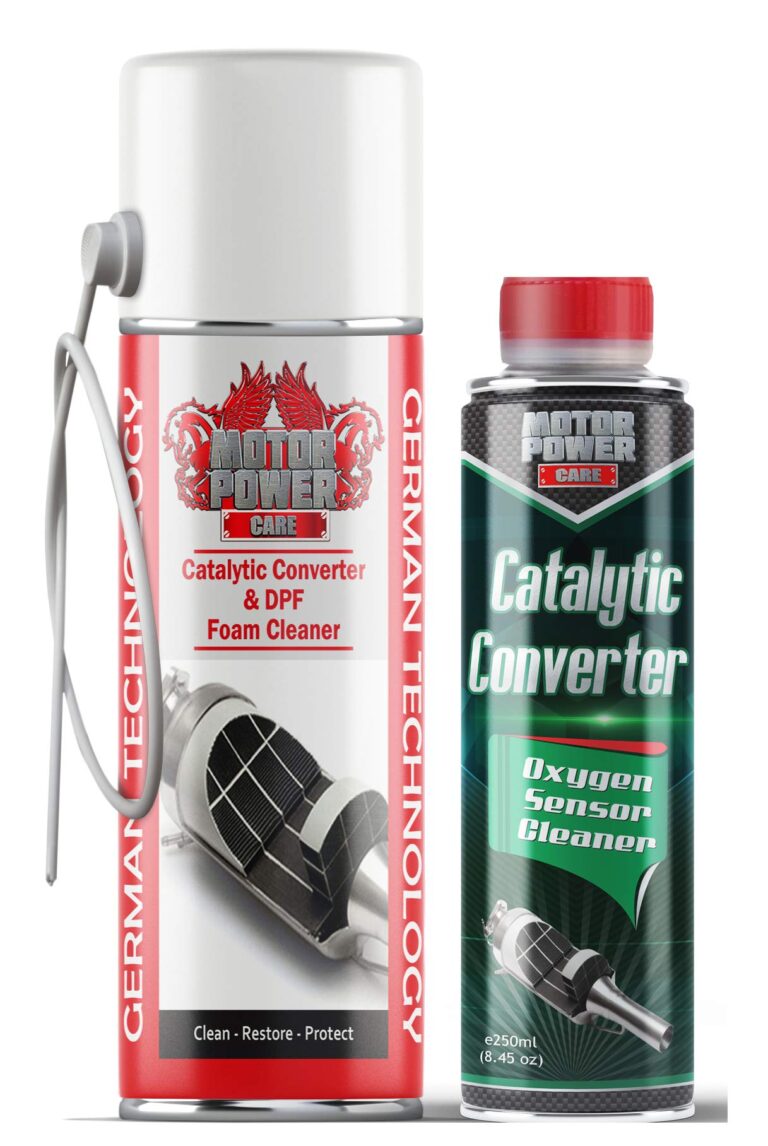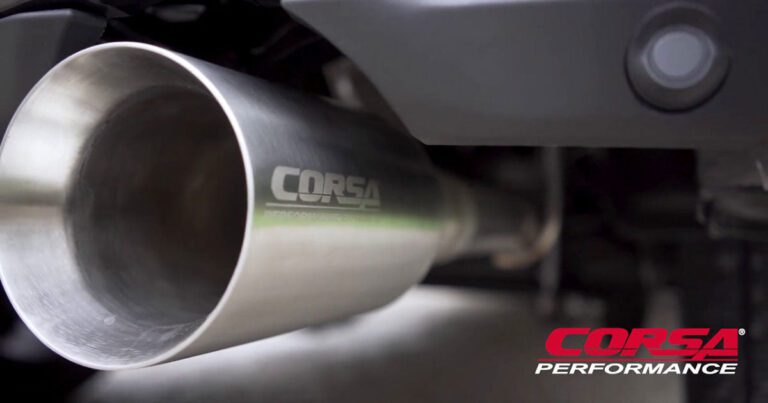Is Having No Catalytic Converter Illegal? Find Out the Shocking Truth!
Yes, having no catalytic converter on your car is illegal in most countries due to emissions regulations. It is considered a violation of environmental laws and can result in fines and penalties.
In recent years, there has been an increased focus on reducing vehicle emissions to protect the environment and public health. Catalytic converters play a crucial role in reducing harmful pollutants emitted from the exhaust system. Removing or bypassing the catalytic converter can lead to increased pollution and contribute to air quality issues.
Authorities actively enforce laws regarding catalytic converters to ensure compliance with emission standards.
The Basics: Catalytic Converter And Its Purpose
Is Having No Catalytic Converter Illegal
|
The Basics: Catalytic Converter and Its Purpose |
|
What is a catalytic converter? |
|
Understanding the role of a catalytic converter in a vehicle’s emissions system |
|
How does a catalytic converter work? |
A catalytic converter is an essential component in a vehicle’s emissions system that helps reduce harmful pollutants released into the environment. It is designed to convert toxic emissions such as carbon monoxide, nitrogen oxides, and unburned hydrocarbons into less harmful gases through a chemical reaction. This device consists of a catalyst that facilitates the conversion process by promoting the reaction between the pollutants and oxygen.
By incorporating a catalytic converter into the exhaust system, vehicles can meet regulatory standards for emissions and reduce air pollution. Operating a vehicle without a catalytic converter can result in increased emission levels and potential violation of legal requirements, depending on the jurisdiction.
Catalytic Converter Regulations And Requirements
Removing a catalytic converter from a vehicle raises questions about its legality. The legality of driving without a catalytic converter depends on the regulations and requirements set forth by the Clean Air Act and individual state or country laws.
The Clean Air Act And Its Impact On Catalytic Converter Usage
The Clean Air Act is a federal law in the United States that aims to regulate air pollution. Under this act, vehicles are required to have functioning catalytic converters to reduce harmful emissions. Removing a catalytic converter is generally considered illegal due to the strict pollutant emission standards set by the act. Violating these regulations may result in fines or penalties.
Catalytic Converter Requirements By State/country
Aside from federal regulations, individual states or countries may have their own specific requirements regarding catalytic converters. These requirements can vary, so it’s important to consult the specific laws in your location. Some states or countries may allow modified exhaust systems without catalytic converters for off-road use only, while others strictly prohibit their removal. To avoid legal issues, it is crucial to understand and comply with the laws in your jurisdiction.
Environmental Impact Of Removing Catalytic Converters
Is Having No Catalytic Converter Illegal
Driving a vehicle without a catalytic converter can have severe environmental consequences. One of the main concerns is the increased air pollution and its detrimental effects on human health. Catalytic converters play a vital role in reducing harmful emissions by converting toxic gases into less harmful substances. Without a catalytic converter, pollutants such as carbon monoxide (CO), nitrogen oxides (NOx), and volatile organic compounds (VOCs) are released directly into the atmosphere.
Air pollution, particularly from vehicle emissions, has been linked to numerous health issues, including respiratory problems, cardiovascular diseases, and even premature death. The release of these pollutants also contributes to the overall greenhouse gas emissions, exacerbating the issue of climate change.
Therefore, it is crucial to ensure that vehicles are equipped with functioning catalytic converters to mitigate the environmental impact and protect both human health and the planet.
Possible Reasons For Removing Catalytic Converters
Removing catalytic converters from vehicles has become a controversial topic, with many wondering whether it is illegal. While the legality of removing catalytic converters may vary depending on your jurisdiction, it is generally considered illegal due to environmental concerns. Catalytic converters play a vital role in reducing harmful emissions and are a crucial component for meeting emission standards.
However, some individuals may be tempted to remove catalytic converters due to claims of performance enhancement. It is believed that removing the converter can increase horsepower and improve overall engine performance. Despite these claims, it is essential to note that removing the catalytic converter can significantly impact the environment and your vehicle’s overall emissions.
Additionally, cost factors and alternative options should be considered before deciding to remove the catalytic converter. While the cost of replacing a faulty converter can be high, there are alternatives available, such as aftermarket converters, which may provide a more affordable solution.
It is worth mentioning that the aftermarket industry also has an influence on catalytic converter removal. There are instances where individuals choose to remove the converter to install performance-enhancing aftermarket parts, despite the potential legal and environmental consequences involved.
In conclusion, while it may be tempting to remove your catalytic converter for perceived performance benefits, it is important to consider the environmental impact and legal implications. Working alongside regulations and exploring alternative options is a responsible approach to vehicle maintenance and emissions control.
Myth Debunked: Is Removing A Catalytic Converter Illegal?
Understanding the legality of catalytic converter removal is crucial for vehicle owners. One common misconception is that removing the catalytic converter is not illegal. However, this is far from the truth. Removing the catalytic converter from your vehicle is indeed illegal in most jurisdictions.
Dispelling the misconceptions, it is important to note that catalytic converters are a vital component of vehicle emission control systems. Their purpose is to reduce harmful pollutants emitted by the engine into the atmosphere. By removing this essential device, you significantly contribute to increased pollution levels and environmental degradation – a violation of emissions regulations.
Moreover, tampering with the catalytic converter can also lead to severe consequences and penalties. Law enforcement agencies actively monitor and enforce these regulations, punishing individuals who remove their catalytic converter. These penalties may include hefty fines, license suspension, vehicle impoundment, and even imprisonment in some cases.
It is crucial for vehicle owners to acknowledge the importance of catalytic converters and comply with the law to protect the environment and avoid legal troubles.
Curbing Catalytic Converter Theft
htmlThe Rise In Catalytic Converter Thefts And Its Impact On Communities
With the rising cases of catalytic converter thefts, communities are being heavily impacted. These thefts have led to increased financial burdens on individuals, businesses, and municipalities alike. Not only do victims have to bear the cost of replacing stolen catalytic converters, but they also face potential damage to their vehicles if these exhaust emission control devices are removed improperly. In response to this worrisome trend, various efforts have been made to prevent catalytic converter theft. Community awareness campaigns, law enforcement initiatives, and stricter legislation have been implemented to address this issue. Education and information dissemination play crucial roles in raising awareness among vehicle owners, enabling them to take necessary precautions and report suspicious activities. As a proactive measure, many car owners have also implemented deterrents and security measures to protect their catalytic converters. These include installing security cameras, utilizing cage or shield systems, engraving vehicle identification numbers (VINs) on the converters, and applying paint or other unique markings. Additionally, some aftermarket companies offer catalytic converter lock devices, which make it more challenging for thieves to remove them quickly. The need to combat catalytic converter theft is urgent, as the impact is not only financial but also environmental. By taking preventive actions and adopting various security measures, communities can work together to discourage theft and protect both individuals and the environment.
Ensuring Proper Catalytic Converter Maintenance And Functionality
Is Having No Catalytic Converter Illegal
Ensuring Proper Catalytic Converter Maintenance and Functionality
Importance of maintaining a functioning catalytic converter:
A catalytic converter plays a crucial role in reducing harmful emissions from vehicles. Regular maintenance of this emission control device is essential to ensure its proper functionality and comply with legal requirements. Failing to have a functioning catalytic converter can lead to legal consequences.
Signs of a failing catalytic converter:
- Check engine light or increased exhaust emissions
- Rattling noise or reduced acceleration
- Foul odor from the exhaust
Tips for prolonging the lifespan of a catalytic converter:
- Use fuel with lower sulfur content
- Regularly inspect and replace worn-out oxygen sensors
- Avoid engine misfires and fix any ignition system issues promptly
- Ensure proper engine maintenance, including regular oil changes
- Do not ignore any warning signs or unusual noises from your vehicle

Credit: issuu.com
Replacing A Catalytic Converter: What You Need To Know
Replacing a catalytic converter is a crucial step in maintaining the performance and environmental compliance of your vehicle. When it comes to selecting a new catalytic converter, there are a few factors to consider. Firstly, you need to ensure that the replacement meets the specific requirements of your vehicle’s make and model.
The cost is another important consideration. Catalytic converters can vary in price depending on the brand and type you choose. It’s worth exploring aftermarket options, as they can offer more affordable alternatives without compromising quality. However, keep in mind that some aftermarket solutions may not meet the same emissions standards as original equipment manufacturer (OEM) converters.
When selecting a replacement catalytic converter, be aware of any legal requirements in your jurisdiction. In some areas, it may be illegal to drive without a catalytic converter. Therefore, it’s crucial to ensure that the replacement you choose complies with all applicable regulations.
In conclusion, replacing a catalytic converter requires careful consideration. It’s important to select a replacement that meets your vehicle’s specific requirements, takes cost into account, and complies with legal regulations to ensure optimal performance and environmental compliance.
Frequently Asked Questions On Is Having No Catalytic Converter Illegal
Is It Ok To Drive Without A Catalytic Converter?
Driving without a catalytic converter is not recommended. A catalytic converter helps reduce harmful emissions from your vehicle. Operating without it can lead to increased pollution and may violate emissions regulations. It’s best to have a properly functioning catalytic converter for environmental and legal reasons.
What Happens If You Don’t Have A Catalytic Converter?
Driving without a catalytic converter can result in increased air pollution, harmful emissions, and potential legal issues.
Can I Replace My Catalytic Converter With A Straight Pipe?
No, you should not replace your catalytic converter with a straight pipe. The catalytic converter is an essential emission control device that helps reduce harmful pollutants from your vehicle’s exhaust. Removing it can lead to increased emissions and may result in your vehicle failing emission tests.
Is It Illegal To Have No Catalytic Converter In Texas?
No, it is illegal to have no catalytic converter in Texas.
Conclusion
It is important to have a catalytic converter installed in your vehicle to comply with legal requirements and protect the environment. Removing or tampering with the catalytic converter is illegal in many countries and can result in penalties. The catalytic converter plays a crucial role in reducing harmful emissions, contributing to cleaner and healthier air quality.
So, make sure to keep your catalytic converter intact and be a responsible vehicle owner.






